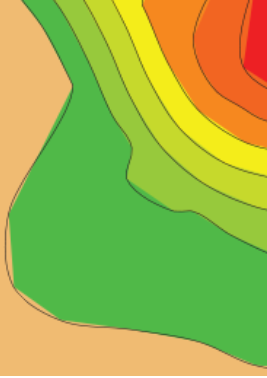土地利用与生态变化:12000年的历史
IF 16
1区 环境科学与生态学
Q1 ENVIRONMENTAL SCIENCES
Annual Review of Environment and Resources
Pub Date : 2021-10-18
DOI:10.1146/annurev-environ-012220-010822
引用次数: 45
摘要
几千年来,人类对土地的利用一直在改变着地球的生态。从狩猎和觅食到焚烧土地,再到耕作和工业化农业,人类对土地的日益集约利用重塑了全球生物多样性、生态系统、景观和气候的格局。这篇综述考察了考古学、古生态学、环境史和基于模型的重建的最新证据,揭示了一个在超过1万年的土地利用中发生了很大变化的星球。虽然土地利用一直维持着人类社会,但其生态后果是多种多样的,有时甚至是相反的:既使土壤退化又使土壤肥沃,使野生栖息地萎缩又形成新的栖息地,在繁殖和驯化其他物种的同时导致一些物种灭绝,既排放又吸收导致全球气候变化的温室气体。土地利用改变了地球的生态,为人类世铺平了道路。现在,一个更美好的未来取决于能够有效地在地球有限的土地上维持人类与其他陆地自然的土地利用战略。本文章由计算机程序翻译,如有差异,请以英文原文为准。
Land Use and Ecological Change: A 12,000-Year History
Human use of land has been transforming Earth's ecology for millennia. From hunting and foraging to burning the land to farming to industrial agriculture, increasingly intensive human use of land has reshaped global patterns of biodiversity, ecosystems, landscapes, and climate. This review examines recent evidence from archaeology, paleoecology, environmental history, and model-based reconstructions that reveal a planet largely transformed by land use over more than 10,000 years. Although land use has always sustained human societies, its ecological consequences are diverse and sometimes opposing, both degrading and enriching soils, shrinking wild habitats and shaping novel ones, causing extinctions of some species while propagating and domesticating others, and both emitting and absorbing the greenhouse gases that cause global climate change. By transforming Earth's ecology, land use has literally paved the way for the Anthropocene. Now, a better future depends on land use strategies that can effectively sustain people together with the rest of terrestrial nature on Earth's limited land.
求助全文
通过发布文献求助,成功后即可免费获取论文全文。
去求助
来源期刊
CiteScore
24.10
自引率
1.80%
发文量
33
审稿时长
>24 weeks
期刊介绍:
The Annual Review of Environment and Resources, established in 1976, offers authoritative reviews on key environmental science and engineering topics. It covers various subjects, including ecology, conservation science, water and energy resources, atmosphere, oceans, climate change, agriculture, living resources, and the human dimensions of resource use and global change. The journal's recent transition from gated to open access through Annual Reviews' Subscribe to Open program, with all articles published under a CC BY license, enhances the dissemination of knowledge in the field.

 求助内容:
求助内容: 应助结果提醒方式:
应助结果提醒方式:


